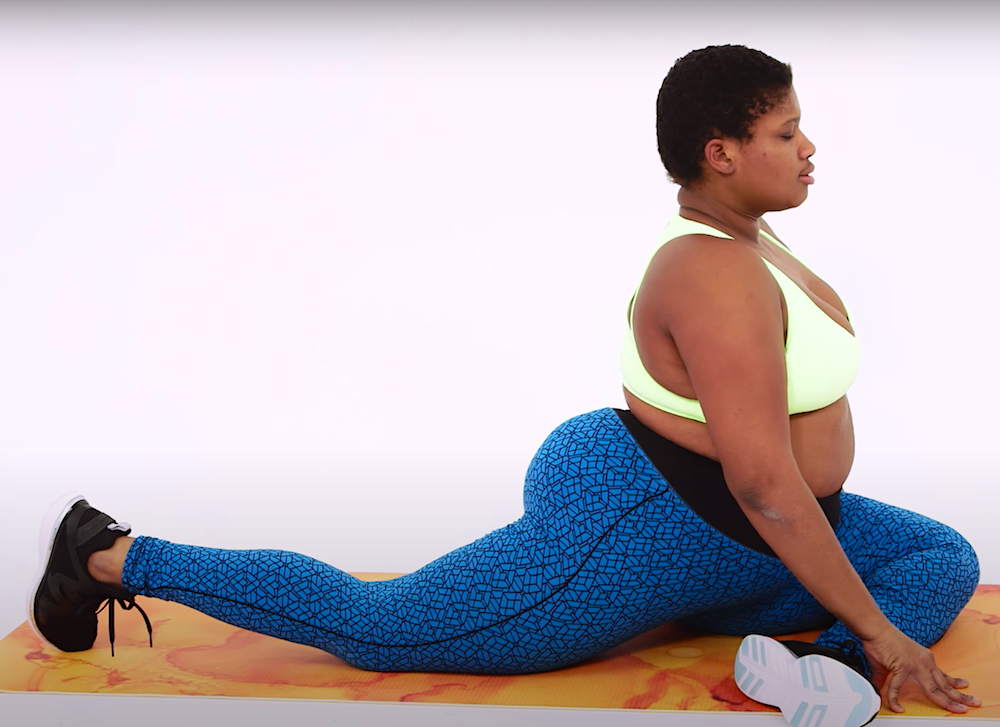Cosmopolitan magazine is glorifying obesity again with plus size models in an article on body positivity in its February issue.
The magazine prominently declares “This is healthy!” on the cover, illustrating visibly obese influencers for the multi-profile publication “11 women who prove that well-being is not ‘one size fits all’”.
Obesity is the second leading cause of preventable death and increases individuals’ risk of complications with COVID-19.
I’m sorry, this is not healthy. @Cosmopolitan pic.twitter.com/U8R0THaiiz
– Tristan Justice (@JusticeTristan) January 4, 2021
“’Healthy’ can be a loaded word,” the women’s fashion and entertainment magazine opened its article. “We ask these women to open up about their personal journeys to claim ‘health’ as their own.” The story highlights several women of diverse body types and lifestyles, each reporting turbulent relationships with their own image.
“Large people often feel they can’t be part of the wellness space,” complains Instagram star Callie Thorpe, who has 250,000 followers on the platform. “We are deceived by being fat, so we can feel excluded from exercise because our bodies don’t fit the narrative.”
Thorpe’s rejection, while unfortunate and felt by millions of others, has now led to the escalation of the promotion of harmful health standards to deal with cultural stigmas associated with obesity. This activism is a dangerous trend with poisonous fruits in the ongoing coronavirus pandemic, in which obesity has been shown to increase people’s risk profiles for COVID-19 complications.
“Since the beginning of the pandemic,” reported Science Magazine in September, “dozens of studies have reported that many of the most sick patients with COVID-19 were people with obesity.” According to a study released in August cited by the main newspaper, overweight patients who contracted COVID-19 were 113% more likely to land in the hospital than patients with healthy weight. Obese patients were 74% more likely to end up in intensive care and 48% more likely to die.
According to the Centers for Disease Control and Prevention, more than 42 percent of Americans were qualified as “obese” in 2017-2018, a condition often responsible as the root cause of diseases that lead to premature death, such as heart disease. , stroke, type 2 diabetes and certain types of cancer, several of which are responsible for the most significant underlying conditions for people susceptible to COVID-19. More than 70% of adults aged 20 and over are overweight.
Dr. Tim Logemann, of the Obesity and Cardiologist Treatment Program at Wausau Aspirus Hospital in Wisconsin, told The Federalist that the number of coronavirus deaths, which exceeds 350,000, according to the latest data from Johns Hopkins University, would be much smaller without the obesity epidemic.
Although COVID-19 is an inflammatory disease, said Logemann, cells in obese people are already inflamed, reducing the body’s immune response even in the absence of pre-existing conditions that routinely lead to serious or even lethal coronavirus complications. When mechanical problems due to obesity, such as difficulty breathing, are combined with a virus that impairs a person’s respiratory function, the risk level increases even more.
“Young people would see far fewer deaths,” said Logemann, if the nation had a healthier weight.
The cover of Cosmopolitan magazine, however, is only fueling the fire of the simultaneous epidemic in the name of welfare activism. Even before the coronavirus pandemic, obesity was routinely classified as the leading cause of preventable death. According to the World Health Organization, at least 2.8 million deaths each year can be attributed to the overweight or obesity of the deceased, a much larger number than the total deaths from COVID-19. At the time of writing, the new coronavirus has taken less than 1.85 million since its first detection, with no unreported numbers of authoritarian regimes.
“I don’t think that shaming the body helps,” said Logemann. “I also don’t think that saying that 45 kilos of excess weight is healthy, because it isn’t.”
Logemann acknowledged that the current “eat less, exercise more” approach to tackling the obesity epidemic has not worked, emphasizing instead treating obesity as a disease. “We need to understand that the current food supply is making most of us sick, and obesity is a disease,” said Logemann. Instead of rejecting the idea that obesity is harmful, Americans need to learn to eat better and have healthy lifestyles.
